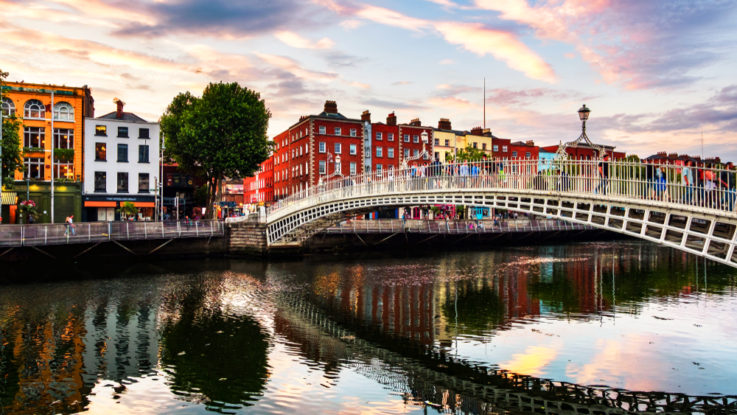
As part of the Smart Dublin program, the capital city of Ireland recently named its Smart Tourism manager, Barry Rogers, who describes his new position as “using digitalization and data analysis to help build more accessible, sustainable and equitable destinations, and more inclusive prosperity.”
The collaborative initiative is backed by the four Dublin local authorities: Smart Dublin, Dublin City Council, Culture Company, and Fáilte Ireland – the national tourism development authority. It focuses on four key areas: data and insights, digital trails, orientation, and digital transformation.
Smart tourism involves using real-time and new types of data to understand economic behaviour and recovery; leveraging digital trails around the city; offering tools to help people navigate; and collecting best practices to embed smart tourism in organisations across the sector and beyond the initial two-year initiative.
Tourism data has traditionally been measured and mapped using annual datasets, such as airline and hotel occupancy, and visitor arrivals and surveys. The smart tourism initiative will create digital trails by working with Fáilte Ireland to provide open data feeds on activities and attractions for Dublin’s new digital kiosks. This relatively low-effort optimisation of the kiosks is expected to provide data to understand what the new normal looks like in Dublin, and make any necessary changes.
“Those datasets were amazing when you had stable growth over a long period of time,” Rogers said, “With the disruption of COVID-19, there is a transformation going on in how destinations approach and understand data.”
The city is also looking to ‘proxy’ datasets – which include anonymised, aggregate data from credit card companies and telecom operators – to provide real-time data. This data is shared by the Dublin Economic Monitor – a bulletin on trends in the Dublin economy for those doing business there.
“For cities wondering how to get their arms around sustainability, community balance and equitable tourism distribution, smart tourism is one of the best ways of achieving that,” Rogers said.